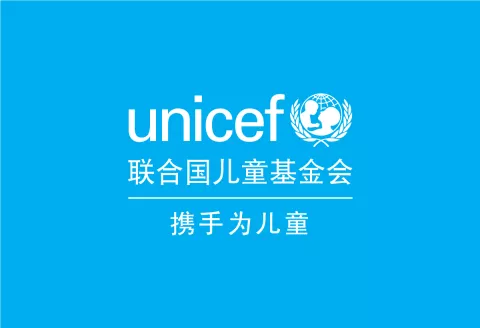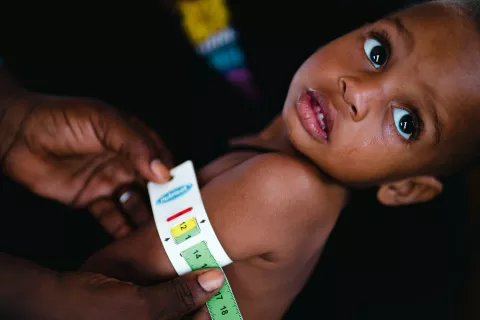Building a community-based social welfare system
Barefoot Scoial Workers highlighted as part of global series on innovation for children
- Available in:
- 中文
- English
Beijing, 14 May 2014 – With internal migration affecting four out of every ten children in China, an innovative approach to child welfare is taking root in the country. The “barefoot social worker”, a grassroots model to extend social services to vulnerable children is being highlighted at an ACTIVIATE Talk, an event hosted by UNICEF, in partnership with the Ministry of Civil Affairs and Beijing Normal University.
With rapid demographic shifts taking place in China and many more people seeking work opportunities in urban areas, an estimated 25 percent of the child population or almost 70 million children, are not living with both parents, the large majority of whom remain in rural areas. For many of these children, who often remain behind with grandparents or with just one parent, there can be challenges in accessing adequate care and supervision, as well as health and education services.
Initiated in 2010, as a pilot project that covered 120 villages in five provinces(Henan, Sichuan, Shanxi, Xinjiang and Yunnan) to address the needs of children affected by HIV and AIDS, the scheme has quickly expanded to reach all vulnerable and orphaned children in pilot areas who were in need. The Child Welfare Director or “barefoot social worker”, who lives within the community, serves as the frontline interface with the child and their families to help them identify needs and link them with the corresponding social services or social assistance.
“The Chinese Government has many national policies that provide for a child's basic rights. Often though for very poor children, or those living without parents, it can be difficult to know how to access these social services. By identifying someone in the community where these children live, who we equip with the right social work skills, we are able to make sure we reach every child with the mix of care as well as practical support to connect them to services and entitlements.” said Dr. Wang Zhenyao, Dean, Beijing Normal University China Philanthropy Research Institute. “As some children also need professional social worker support, the Government also has a responsibility to invest in professional child welfare services. Professional services could learn from the experiences of this pilot as a pioneer.'
The scheme, which has had measurable impact in supporting children to access services and receive better care as more children are registered, is now being rolled out to other provinces. Often the “barefoot social worker” will help the child get a birth certificate or a residence identity that in turn can help them enrol in school, get vaccinated, and also access other social benefits. They also provide emotional and social support as well as identify protection issues that might contribute to a child's vulnerability.
“We recognize the importance of working with the community to strengthen the role played by Government in providing adequate care, protection and support for our children, “ said Mr. Xu Jianzhong, Deputy Director-General of Department of Social Welfare and Charity Promotion, Ministry of Civil Affairs. “ We are working with the provinces to see how best we can commit the needed resources to roll this out so as to reach more and more children.”
As part of its commitment to the Convention on the Rights of Child, the Government of China has committed to expanding this model, endorsing it as part of its Outline for the Development of Chinese Children (2011-2020) and building an inclusive child welfare system. Under the leadership of the Ministry of Civil Affairs, the project is now being expanded to Kunshan City in Jiangsu Province, Haining City in Zhejiang Province, Luoning County in Shenzhen Municipality, Guangdong Province, and then another 46 cities.
“Around the world UNICEF is working with partners to demonstrate concrete ways innovation, whether it be technologically advances or new approaches in tackling poverty, can help reach children in remote and isolated areas, “ said Dan Toole, UNICEF Regional Director, East Asia and the Pacific. The success of this social workers pilot which has now been expanded to reach more and more children, illustrates how we can tackle social inequality, with a mix of dedication, community engagement as well as government commitment.”
The dialogue with experts and academics is part of this year's global celebration of the 25th anniversary of the Convention on the Rights of the Child, which UNICEF has also declared as the Year of Innovation for Equity. It is one of a series of global debates happening around the world to show case innovative solutions that has contributed to tackling and reducing inequities, which continue to deprive millions of children around the world of their basic rights.
Media contacts
About UNICEF
UNICEF works in some of the world's toughest places, to reach the world's most disadvantaged children. Across 190 countries and territories, we work for every child, everywhere, to build a better world for everyone. For more information about UNICEF and its work for children visit www.unicef.org.
| Visit UNICEF China website: www.unicef.cn Follow us on Sina Weibo: http://weibo.com/unicefchina Tencent Weibo: http://t.qq.com/unicef Wechat: unicefchina |



